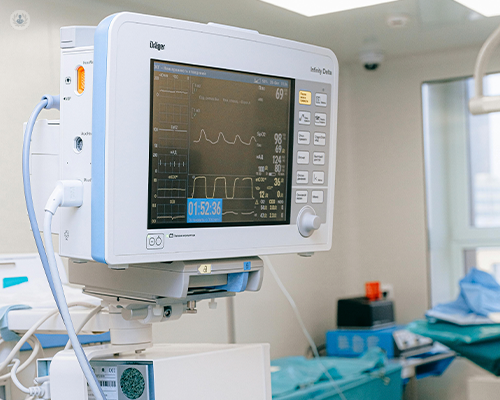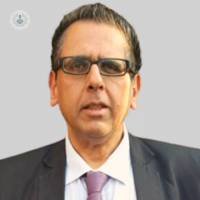The silent killers: understanding and preventing sudden cardiac arrest
Written in association with:Sudden cardiac arrest (SCA) is one of the leading causes of death. It often occurs without warning and can affect people of all ages and health levels. In this article, leading consultant cardiologist Mr Arvind Vasudeva answers common questions that patients may have about this serious condition, how to recognise it, and most importantly, how to prevent it.

What is sudden cardiac arrest?
Sudden cardiac arrest happens when the heart suddenly and unexpectedly stops beating, interrupting blood flow to the brain and other vital organs. Unlike a heart attack, which is caused by a blockage in the coronary arteries, SCA is usually due to an electrical problem in the heart, such as a severe arrhythmia. If not treated immediately, usually with cardiopulmonary resuscitation (CPR) and defibrillation, it can be fatal within minutes.
What are the main causes of sudden cardiac arrest?
There are several causes that can lead to SCA. The most common include:
- Coronary artery disease: the risk increases in people with a history of heart attacks or coronary artery disease.
- Cardiomyopathies: diseases of the heart muscle that affect the heart's ability to pump blood effectively.
- Arrhythmias: heart rhythm disorders, such as ventricular fibrillation, which disrupt the heart's electrical activity.
- Long QT syndrome: a genetic disorder that affects the heart's electrical system and can lead to dangerous arrhythmias.
- Drug use and certain medications: substances like cocaine or certain drugs can trigger lethal arrhythmias.
What are the symptoms of sudden cardiac arrest?
SCA can occur without warning, but sometimes it is preceded by symptoms that indicate underlying heart problems. These may include:
- Chest pain or discomfort.
- Rapid or irregular heartbeats.
- Dizziness or fainting.
- Shortness of breath with no apparent cause.
If someone experiences these symptoms, it is essential to seek medical attention immediately, as they could be signs of a serious heart condition that requires treatment.
Who is at risk of sudden cardiac arrest?
Although SCA can affect anyone, some factors increase the risk, including:
- Family history: having close relatives who have experienced SCA or heart disease increases the risk.
- Previous heart attacks: people who have had heart attacks are more likely to experience SCA.
- Heart failure: a weakened heart is more prone to arrhythmias that can lead to SCA.
- Intense sports: in rare cases, intense exercise can trigger SCA in people with undiagnosed heart conditions.
How can sudden cardiac arrest be prevented?
Preventing SCA involves identifying and managing risk factors. Key strategies include:
- Managing underlying heart diseases: if you have coronary artery disease, hypertension, or diabetes, it is esential to follow medical advice to control these conditions.
- Medication: in some cases, beta-blockers or other medications may reduce the risk of SCA in people with certain risk factors.
- Implantable cardioverter-defibrillator (ICD): in high-risk individuals, an ICD can be an effective preventive measure. This device detects and automatically treats dangerous arrhythmias.
- Healthy lifestyle: maintaining a balanced diet, exercising regularly, and avoiding smoking and excessive alcohol consumption can significantly reduce the risk of SCA.
What to do if someone experiences sudden cardiac arrest?
If you witness someone experiencing SCA, acting quickly can save a life. Here are the steps to take:
- Call 999 or 112 immediately: seek urgent help.
- Start CPR: begin strong and fast chest compressions until professional help arrives.
- Use an Automated External Defibrillator (AED): if an AED is available, use it following the instructions. These devices are designed for use by people with no medical training and can restore a normal heartbeat.
When should you see a cardiologist?
If you have a family history of heart problems, have experienced symptoms such as chest pain or palpitations, or are simply concerned about your heart health, it is advisable to consult a cardiologist. A specialist can perform tests to assess your risk of SCA and recommend personalised prevention strategies.
If you would like to book a consultation eith Dr Vasudeva, simply visit his Top Doctors profile today.


